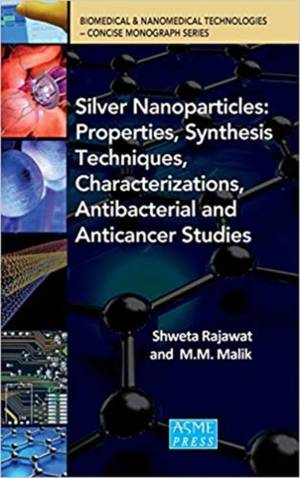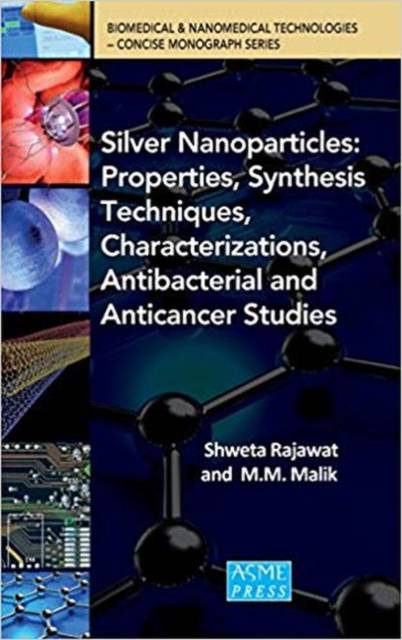
- Afhalen na 1 uur in een winkel met voorraad
- In januari gratis thuislevering in België
- Ruim aanbod met 7 miljoen producten
- Afhalen na 1 uur in een winkel met voorraad
- In januari gratis thuislevering in België
- Ruim aanbod met 7 miljoen producten
SIlver Nanoparticles
Properties, Synthesis Techniques, Characterizations, Antibacterial and Anticancer Studies
Rajawat Shweta, Malik M MOmschrijving
Silver nanoparticles are found to have wide applications in diverse
areas like optical receptors, bio-labelling sensors, bio active materials,
solar energy conversion, signal enhancers in SERS based enzyme
Immunoassay [1]. Silver nano particles exhibit high antimicrobial and
anti cancer activities. The fabrication of silver nanoparticles and nano
structures has aroused the interest of many researchers. Various synthesis
methods have also been developed.
Among the existing synthesis methods, mostly chemical methods,
which involve toxic and potentially hazardous chemicals, are mostly
used. The green synthesis based on green chemistry, replaces hazardous
chemicals by environmental friendly products. Green Chemistry is the
utilization of a set of principles that reduces or eliminates the use or
generation of hazardous substances. Biological methods are better substitute
for the chemical procedures, because they are convenient, widely
distributed along the ecological boundaries and are safe to handle.
The objective of the present work is to synthesize silver nanoparticles
by the methods designed on the principles of green chemistry. The
designed methods focus mainly on control over the size of the nanoparticles.
This work also includes the study of the effect of current (through
the circuit), temperature, strength of the precursor, reducing/capping
agents and concentration of the capping agents on nanoparticles and the
nanostructures. The as-synthesized silver nanoparticles are analyzed
using various characterization techniques e.g. XRD, TEM, UV-Visible
spectroscopy etc. This work finds application of the silver nanoparticles
in biomedical field. The findings of the tests conducted for antibacterial
properties show almost 100% killing efficiency against E. coli, S.
Aureus, S. Typhi and P. Aeruginosa. In case of testing the samples for
anti-cancer activities, the results show 80-98% growth inhibition for
MC F-7 Breast Cancer cell lines and He-La cervical cancer cell lines.
The monograph contains 5 chapters. Chapter 1 gives a brief introduction
of silver nanoparticles, covering their properties, synthesis
approaches and applications.
Chapter 2 introduces historical background of silver and narrates
exhaustive literature review conducted during the research. The chapter
gives details about the existing physical, chemical and biological
approaches and identifies the gap in the present synthesis methods. It
justifies the need and importance of the present work.
Chapter 3 gives details about the materials and the synthesis methods
used in the present research work. It describes the five different methods,
designed in the present research work, with varying parameters
that control the morphology of the nanoparticles and nanostructures.
Chapter 4 gives the results and discussions in details regarding the
as-synthesized silver nanoparticles. The results are analyzed and discussed,
sequentially according to the five methods.
Chapter 5 provides summary and conclusion of the present research
work and the scope of future work.
Specificaties
Betrokkenen
- Auteur(s):
- Uitgeverij:
Inhoud
- Aantal bladzijden:
- 184
- Taal:
- Engels
- Reeks:
Eigenschappen
- Productcode (EAN):
- 9780791860458
- Verschijningsdatum:
- 28/02/2018
- Uitvoering:
- Hardcover
- Formaat:
- Genaaid
- Afmetingen:
- 152 mm x 229 mm
- Gewicht:
- 417 g

Alleen bij Standaard Boekhandel
Beoordelingen
We publiceren alleen reviews die voldoen aan de voorwaarden voor reviews. Bekijk onze voorwaarden voor reviews.









